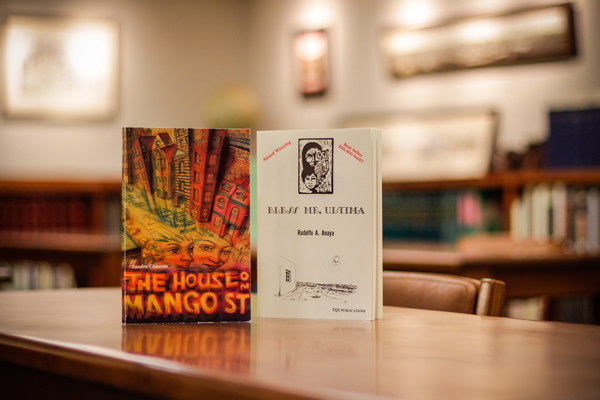Banned Books Week
This week marks Banned Books Week, an annual celebration that highlights free and open access to information. This year’s theme focuses on the importance of the First Amendment, which guarantees the right to read.
This celebration is concurrent with National Hispanic Heritage Month (September 15 through October 15). Lisa Cruces, Hispanic Collections archivist at the University of Houston Libraries Special Collections, offers her thoughts on banned books in the context of Hispanic and Latinx authors and literature. UH Special Collections is home to many rare and unique titles that have been challenged or banned. These selections are available for research in the Special Collections Reading Room.
Banned Books Week is a great time to reflect on issues that impact many different communities year-round. It highlights the intersection between literature, knowledge, free speech, and underrepresented communities. Challenged books often call to light issues with which people in the Latinx community have been struggling for decades, in particular and very recently, ethnic studies materials in public schools that document and put voice to the experiences of immigrant and undocumented communities.

The House on Mango Street and Bless Me, Ultima, two banned books available for research in UH Special Collections.
Books representing voices from all backgrounds and cultures are powerful tools that validate an individual’s or community’s experience and contributions. Some of the titles that have been banned, such as Bless Me, Ultima or The House on Mango Street, are examples of the repression of different voices, and of hindering knowledge and growth in education and society. When we ban a book, we ban a voice.
It’s great to reflect on voices in literature that don’t necessarily line up with your perspectives. Controversial books are just one way of understanding others’ experiences and circumstances. By being exposed to different opinions, we can reevaluate why we believe what we do, and expand what we believe, and ultimately better understand the perspectives of others. Books that might be controversial at one period in time serve as reminders that, although we’ve evolved as a society, we must continue to humanize these topics in order to grow further.
Many of those challenged titles can be found in the Kanellos Latino Literary Movement Collection, housed in UH Special Collections. We’re fortunate enough to have some of those early manuscripts in our archival collections, and it’s wonderful to see that now they’re being published in fifth and sixth editions. The topics are still timely. The University provides a place for research, preservation, and incorporation of those works in higher education and it’s important to show that we’re preserving and creating avenues for those voices to be accessed.